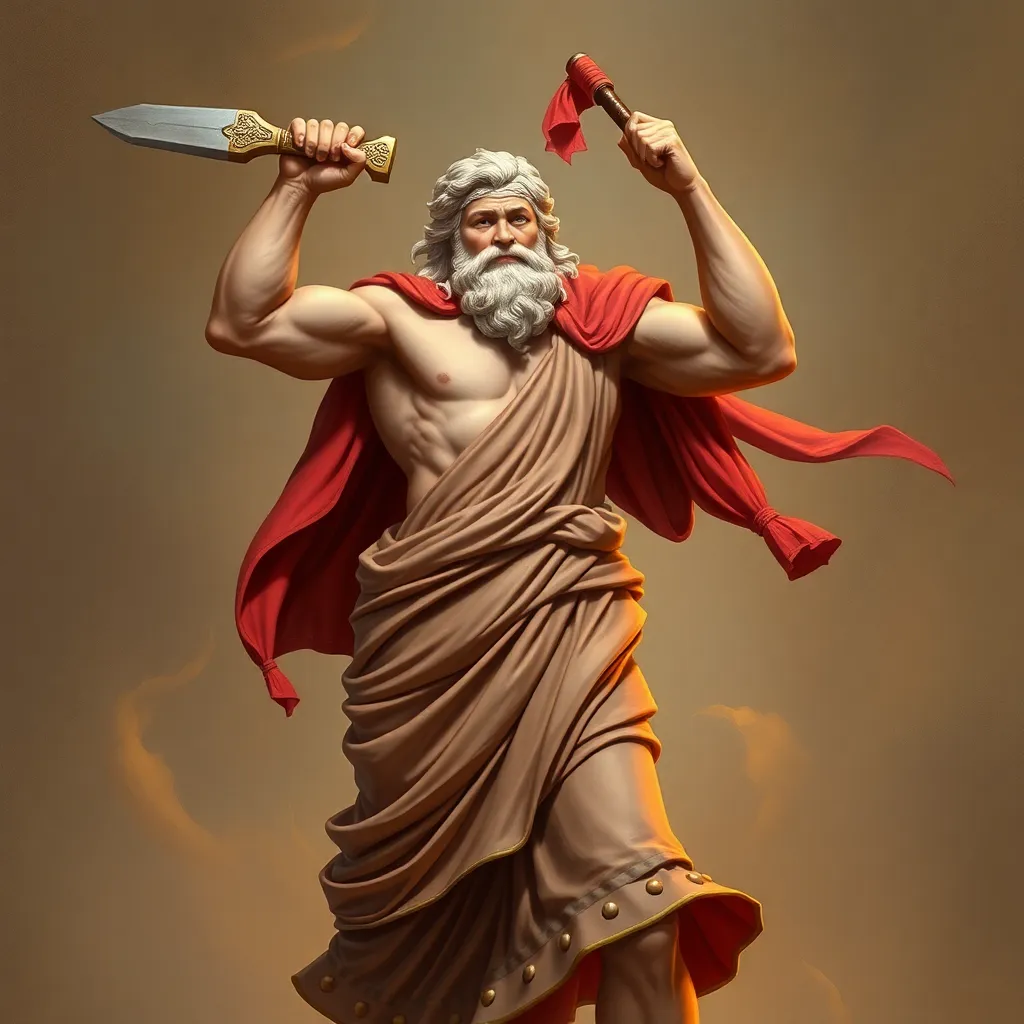Heracles and the Concept of Redemption in His Story
I. Introduction
Heracles, known as Hercules in Roman mythology, is one of the most celebrated heroes in Greek mythology. Renowned for his incredible strength and bravery, his legends have transcended time and culture. Heracles embodies the archetypal hero, yet his story is deeply woven with themes of struggle, redemption, and transformation.
The concept of redemption refers to the act of reclaiming or being saved from sin, error, or evil. In the context of Heracles’ journey, redemption manifests through his trials and tribulations, leading to personal growth and transformation.
This article posits that Heracles’ journey illustrates the multifaceted nature of redemption through trials, personal growth, and ultimately, transformation, making his story not just one of heroism, but also one of profound moral and psychological depth.
II. The Mythological Context of Heracles
Heracles’ origins are steeped in mythology, beginning with his birth to Zeus, the king of the gods, and Alcmene, a mortal woman. This divine and mortal lineage sets the stage for a life of conflict and struggle.
- Divine Parentage: Heracles is the son of Zeus, which grants him immense strength and capabilities.
- Mortal Struggles: Despite his divine heritage, Heracles faces numerous challenges and adversities throughout his life, often stemming from the jealousy of Hera, Zeus’ wife.
Heracles holds significant importance in Greek mythology, symbolizing the human condition and the perpetual struggle between good and evil, divine favor and mortal suffering.
III. The Twelve Labors: Trials as a Path to Redemption
The Twelve Labors of Heracles are a series of tasks that he must complete as punishment and a means of atonement for a grievous act he committed under Hera’s influence. Each labor presents both a physical challenge and a symbolic representation of the struggle for redemption.
- 1. Slay the Nemean Lion: Represents overcoming invincible fears.
- 2. Slay the Lernaean Hydra: Symbolizes confronting and defeating internal chaos.
- 3. Capture the Golden Hind: Signifies the pursuit of elusive ideals.
- 4. Capture the Erymanthian Boar: Represents the struggle with one’s own nature.
- 5. Clean the Augean Stables: Symbolizes the cleansing of one’s past actions.
- 6. Slay the Stymphalian Birds: Represents the battle against destructive forces.
- 7. Capture the Cretan Bull: Symbolizes the mastery of one’s passions.
- 8. Steal the Mares of Diomedes: Represents the subjugation of brutal instincts.
- 9. Obtain the Girdle of Hippolyta: Symbolizes the pursuit of wisdom and justice.
- 10. Capture the Cattle of Geryon: Represents the challenge of overcoming formidable obstacles.
- 11. Steal the Apples of the Hesperides: Symbolizes the quest for immortality and knowledge.
- 12. Capture Cerberus: Represents the acceptance of death and the past.
Through these labors, Heracles exemplifies perseverance, showcasing how enduring challenges can lead to atonement and redemption.
IV. The Role of Guilt and Responsibility in Heracles’ Redemption
Heracles is not without his tragic flaws; his moments of weakness often lead to catastrophic consequences. The most notable of these is the madness inflicted upon him by Hera, which drives him to kill his wife and children. This act becomes a pivotal moment in his life, triggering his quest for redemption.
- Tragic Flaw: Heracles’ impulsive nature often leads him into situations where his strength cannot save him.
- Consequences: The madness symbolizes the burden of guilt and the struggle for atonement that follows.
Heracles’ acceptance of his guilt and the responsibility for his actions is crucial to his redemption arc. This acceptance sets him on a path where he can seek forgiveness and ultimately find peace.
V. The Influence of Companions and Mentors
Throughout his journey, Heracles is supported by several key figures who aid him in his trials. These companions and mentors play a vital role in his growth and redemption.
- Athena: The goddess of wisdom, who provides guidance and support during his trials.
- Iolaus: Heracles’ nephew and companion, who assists in various labors, emphasizing the importance of friendship.
The relationships Heracles forms highlight the significance of companionship and mentorship in overcoming personal struggles and achieving redemption.
VI. The Transformation of Heracles: From Hero to God
Heracles’ journey culminates in his apotheosis, where he is granted immortality and becomes a god. This transformation is significant as it represents not just a reward for his labors, but also a redemption in the eyes of the gods and humanity.
- Significance of Apotheosis: Heracles’ ascension to godhood symbolizes the ultimate redemption and acceptance by the divine.
- Redemption in the Eyes of Others: His transformation shifts the perception of him from a flawed hero to a revered deity.
Becoming a god signifies the culmination of his struggles, illustrating how redemption can lead to transformation and elevation beyond mortal limitations.
VII. Modern Interpretations of Heracles and Redemption
Heracles continues to be a symbol in literature and popular culture, representing the timeless themes of struggle and redemption. His story resonates with contemporary discussions on these topics.
- Literature and Film: Modern adaptations often portray Heracles as a character navigating personal dilemmas, reflecting societal values.
- Relevance Today: His journey serves as a metaphor for the challenges individuals face in seeking redemption in their own lives.
Comparisons can be drawn between Heracles and modern heroic figures, highlighting the universal nature of the redemption narrative.
VIII. Conclusion
Heracles’ journey through trials, guilt, and ultimately redemption is a profound narrative that transcends time. His story encapsulates the struggles inherent in the human condition and the quest for personal growth and transformation.
The enduring nature of redemption, as illustrated through Heracles, continues to resonate in both mythology and modern narratives, providing valuable lessons on the importance of perseverance, acceptance, and the transformative power of redemption.
Ultimately, Heracles’ legacy serves as a reminder that redemption is a continuous journey, one that involves facing our trials, accepting our flaws, and striving for personal and collective growth.




